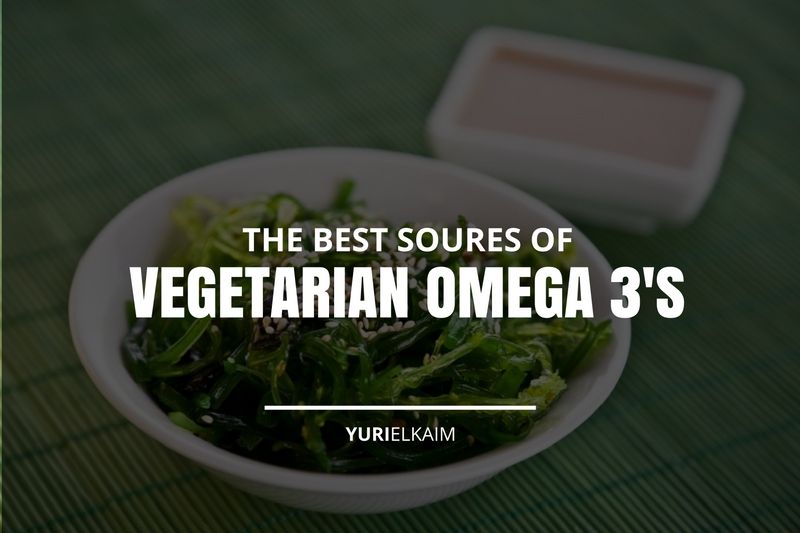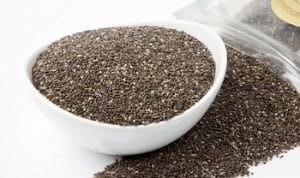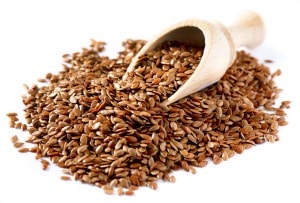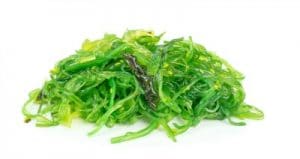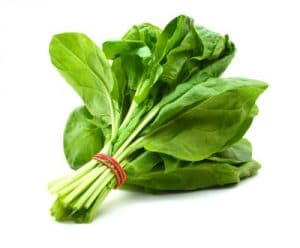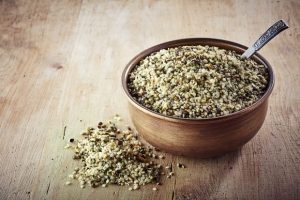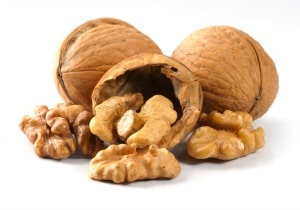In this article
We all know that heart disease is a killer – in fact, it’s the leading cause of death across the globe, killing more people than all types of cancer combined.
And most of us know the biggest causes of heart disease: poor diet, lack of exercise, smoking, stress, and obesity.
So we do what we can to help fight it. We exercise, eat a diet low in salt and rich in vegetables, gluten-free grains, and lean proteins.
And we also make sure to eat omega-3 fatty-acid-rich fish at least twice a week.
But what if you’re a vegetarian or vegan? How are you supposed to get the omega-3 benefits of fish?
Typically, if you can’t get enough healthy fat from your diet, the American Heart Association notes that you might want to consider supplementation. That can mean popping a fish oil capsule or two daily.
But for vegans and strict vegetarians, those fish oil capsules are a no-go as they contain animal products.
The good news: a well-planned vegan or vegetarian diet can still meet your needs and follow a heart-healthy diet, completely free of meat and fish.
Omega-3 Fatty Acids 101
So what are omega-3 fatty acids? And how can you make sure you’re getting enough from plant-based sources?
Let’s dive in.
Fat has gotten a bad rap over the years, but the truth is that fat is a key component of a healthy and balanced diet.
And yes, some fats are better than others.
Trans fats, for example, should be avoided at all costs while unsaturated fats, like omega-3 fatty acids, should be a staple in any healthy diet.
Omega-3 fats are broken down into three main types: eicosapentaenoic acid (EPA), docosahexaenoic acid (DHA), and alpha-linolenic acid (ALA).
These fatty acids serve a variety of vital functions in the body.
They play a role in blood clotting, reducing inflammation, forming the membranes of our cells, and aiding in normal growth and development.
EPA and DHA are the long-chained fatty acids that boast the longest list of benefits.
Meanwhile, ALA is also a healthy form of omega 3s an can be converted to EPA and DHA, but in much smaller quantities. Typically somewhere between 8 percent to 20 percent of ALA is converted to the beneficial forms, EPA and DHA.
It’s important to keep in mind that most vegetarian forms of omega-3 fatty acids come in the form of ALA. That’s why it might be a good idea to consider supplementing with fish oil or a DHA/EPA supplement to confirm that you’re meeting your needs.
You Need Omega 3s
Ensuring an adequate intake of omega-3 fatty acids is crucial for disease prevention. In fact, omega-3 fatty acids have been shown to protect against cancer, prevent heart disease and stroke, and ease the inflammation associated with rheumatoid arthritis (1).
Omega-3 fatty acids are considered essential fats because the body isn’t able to produce them. That means we need to get them through the diet.
The World Health Organization recommends getting at least 0.3-0.5 grams of EPA and DHA daily plus 0.8-1.1 grams of ALA.
Deficiency of omega-3 fatty acids can cause:
- Fatigue
- Heart problems
- Depression
- Poor circulation
- Impaired memory
- Dry skin
- Impaired brain growth and development for infants
The main dietary source of omega 3s is oily fish, such as salmon, mackerel, sardine, and anchovies. Obviously, this can make getting enough omega-3 fats a real challenge for vegetarians and vegans who don’t eat fish.
Even supplementing can pose a problem because fish oil, the most traditional source of supplementation, isn’t exactly vegetarian-friendly.
Luckily, there are plenty of vegetarian and vegan sources of omega 3 that make it relatively simple to meet your needs.
Vegetarian Sources of Omega 3
Here are a few of the best vegetarian omega 3 sources.
1) Chia seeds
These tiny seeds are packed with alpha-linolenic acid and heart-healthy benefits.
Gram for gram, chia seeds actually contain more omega-3 fatty acids than salmon! Plus, chia seeds are loaded with other nutrients, like fiber and protein.
Best of all, chia seeds are easy (and delicious) to incorporate into your diet.
Start the day with a nutritious chia seed breakfast bowl, fill up with a sweet potato and chia veggie burger, and top it off with a tasty banana chocolate chia pudding parfait.
Make sure you let them soak for at least 10 to 15 minutes to allow them to form a gel-like consistency.
2) Flaxseeds
About 50 percent of the oil in these small but powerful seeds is alpha-linolenic acid, making them one of the richest plant-based sources of omega-3 fatty acids.
Flaxseeds have long been studied for their beneficial effects on cardiovascular disease.
In fact, they are inversely associated with cardiovascular events and are able to decrease inflammation while dropping LDL cholesterol (2).
Sprinkle flaxseed in your morning smoothie, mix it in with your oatmeal, or give sandwiches and soups a tasty crunch by adding a bit of flax seed.
Plus, did you know that you can substitute flaxseeds for eggs to make any recipe vegan and give it a healthy twist?
You can also use the more concentrated flaxseed oil, which is considered one of the best vegan sources of omega 3 and is touted as having the same heart-healthy effects as fish oil.
3) Seaweed
Seaweed actually has a higher ratio of omega-6 to omega-3 fatty acids, but it makes the list because it is the only vegan source that provides both EPA and DHA.
As mentioned, this is important because ALA is converted only in small amounts to EPA and DHA.
Wakame is a great way to include seaweed in your diet.
Add it to your next salad for a flavorful alternative to lettuce, try using it in a miso soup, or chow down on roasted seaweed sheets for a tasty snack.
If you’re looking for vegetarian omega 3 supplements, spirulina is an excellent choice.
This blue-green algae typically comes in powder or pill form and contains omega 3s plus lots of protein, iron, vitamins, and minerals. Blend it up with your green smoothie for a heart-healthy dose of omega 3s.
4) Leafy Greens
As if you needed yet another reason to eat more leafy greens, they are a good vegetarian source of omega-3 fatty acids.
Broccoli, spinach, kale, and romaine all contain some of the essential alpha-linolenic acids that the body needs.
The most obvious way to include more leafy greens in the diet is with salads, of course, but there are plenty of other ways to get in more greens.
Make a lettuce wrap with your favorite ingredients, bake up some crispy kale chips, sauté your greens for a savory side dish, or drink your greens with a delicious detoxing green smoothie.
5) Hemp seeds
Besides being a complete protein, rich in fiber, and full of antioxidants and minerals to optimize health, hemp seeds also boast an impressive amount of omega-3 fatty acids.
In fact, they have an omega-6 to omega-3 ratio of about 3:1, which is great for reducing inflammation and promoting a healthy heart.
With your next salad, drizzle a bit of hemp salad dressing or try your hand at hemp seed hummus or hemp seed pesto.
It also makes a great topping for cereal, yogurt, or oatmeal so load up.
6) Winter squash
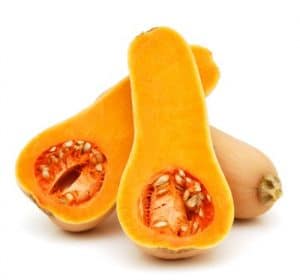
Just one cup of baked winter squash provides about 340 milligrams of ALA, which is a pretty significant chunk of what you should be taking in daily.
Snack on pumpkin seeds, enjoy a classic baked acorn squash, warm up with a hot bowl of squash soup, or even try out squash risotto if you’re looking for creative ways to add more winter squash into your diet.
7) Walnuts
Walnuts are revered for their heart-healthy benefits, and for good reason.
They are full of monounsaturated fats, plus bursting with protective and antioxidant-rich vitamin E. Best of all, walnuts are an excellent source of omega-3 fatty acids.
Walnuts can be added to desserts, salads, or cereals. Or, enjoy them solo!
They make a great nutrient-dense snack perfect and provide a burst of energy while keeping you full for hours.
Plan Ahead for Heart Health
As you can see, getting enough omega-3 fatty acids can be challenging for vegetarians and vegans, but it is possible with a bit of strategic planning.
It should be noted that there’s still some debate on the significance of the ratio of omega-6 to omega-3 fatty acids.
Current guidelines recommend aiming for a ratio of about 4:1 for omega-6 to omega-3 intake, which is very different from the current Western diet with an estimated ratio of approximately 16:1.
Certain nutrient-rich foods, such as nuts and olive oil, tend to have a higher ratio of omega-6 to omega-3 fatty acids, but that doesn’t mean that we should be excluding them from our diet.
Instead, put the focus on unprocessed, nutrient-rich, whole foods. By cutting out highly processed foods that are rich in omega-6, like vegetable oils, you’ll be improving your health, helping your heart, and favorably tipping the balance of omega-6 to omega-3 fats in your diet.
How Healthy Are You? (Quiz)
Do you know your health quotient?
Do you have hidden health issues that you aren’t aware of, that are making you store fat and feel “blah”?
Take the What’s Your Health Score? quiz to see how you rank.
It’s FREE! Just click the banner below.

